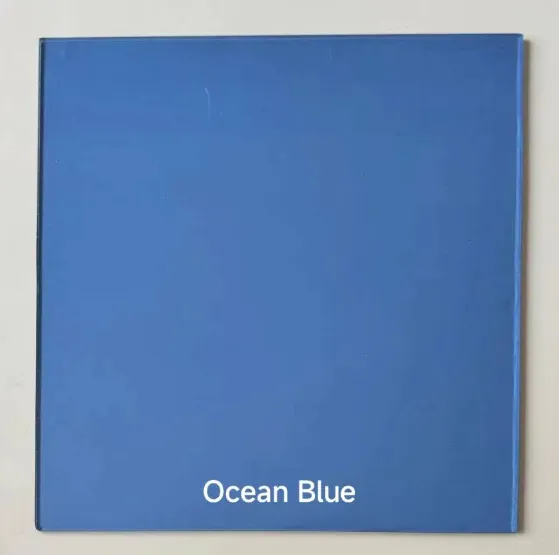Float flat glass, as the foundation for myriad applications, plays a pivotal role in various industries, from construction and automotive to solar energy. Known for its high quality and versatility, float flat glass is created through a precise process and offers outstanding performance, ensuring its position as a trusted material worldwide.

The modern float glass process revolutionized the glass industry when it was first introduced by Sir Alastair Pilkington in the 1950s. This innovation involves floating molten glass on a bed of molten tin, creating a uniform thickness and a perfectly flat surface. The result is a glass that is not only clear and flawless but also strong and durable, making it ideal for a wide range of uses.
In the architectural industry, float flat glass is synonymous with sleek, modern design. Its ability to allow natural light into buildings makes it an excellent choice for windows and facades, promoting energy efficiency and enhancing aesthetic appeal. Advances in float glass technology have also allowed for various coatings and treatments, improving its thermal insulation properties and even offering self-cleaning capabilities. Experts in architecture and design attest to its effectiveness in reducing energy costs and increasing occupant comfort.

Automobile manufacturers globally recognize float flat glass for its integral role in vehicle design. It provides clear visibility while maintaining structural integrity, crucial for both safety and style. The automotive sector increasingly demands high-quality, lightweight glass to improve fuel efficiency and meet environmental standards.
Float flat glass meets these requirements, demonstrating versatility and adaptability in innovative automotive applications.
In the realm of renewable energy, float flat glass is a critical component of solar panels. Its high transmittance and low iron content enhance light absorption and overall efficiency of photovoltaic cells. Experts in the solar industry highlight the glass's exceptional durability and ability to withstand harsh environmental conditions, imperative for the longevity of solar installations.
float flat glass
For consumers, the benefits of float flat glass extend beyond its functional uses. The glass is highly recyclable, aligning with global sustainability goals and reducing the environmental impact. Studies and industry reports consistently emphasize its eco-friendly attributes, reinforcing its position as a sustainable choice in a world increasingly conscious of its carbon footprint.
The reliability of float flat glass is underscored by its compliance with numerous international standards and certifications. These endorsements confirm the glass's quality, safety, and performance, assuring customers of its dependability in various applications. Industry leaders consistently endorse float flat glass for its excellence, reaffirming its authoritative status in the market.
Trust in float flat glass is also derived from the expertise of manufacturers who invest in cutting-edge research and development. These companies not only adhere to strict manufacturing protocols but also prioritize innovation to meet evolving industrial demands. Such dedication ensures that float flat glass remains at the forefront of technological advancements, gaining the trust of industries worldwide.
In summary, float flat glass is a material that embodies experience, expertise, authoritativeness, and trustworthiness. Its versatile applications across different sectors, coupled with ongoing innovation and sustainable practices, cement its place as an indispensable component in modern society. From architects and automotive engineers to environmental scientists and consumers, the endorsement of float flat glass is universal, driven by its unmatched quality and performance.



